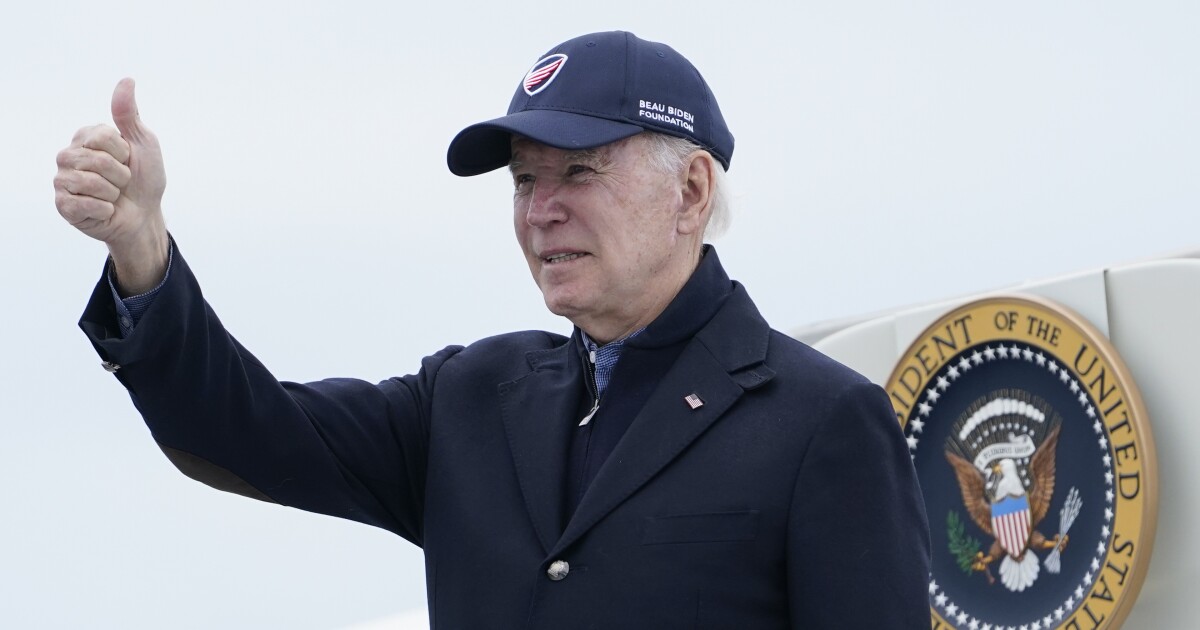

Speaker Nancy Pelosi (D-CA) announced on Monday that the House will move quickly to vote on legislation to implement a labor agreement between railroads and unions, shortly after President Joe Biden called on Congress to act quickly in order to stave off a strike that would damage the economy.
The legislation Biden is asking Congress to adopt would adopt the tentative agreement approved by labor and management negotiators in September. Some union members have voted not to ratify the bargain, raising the threat of a strike after the Dec. 9 deadline.
“The deal provides a historic 24% pay raise for rail workers,” a statement from Biden read. “It provides improved health care benefits. And it provides the ability of operating craft workers to take unscheduled leave for medical needs.”
KELLYANNE CONWAY APPEARS BEFORE JAN. 6 COMMITTEE AS PANEL RACES TO FINISH REPORT
Biden warned that should a railroad strike go forth, it would “devastate our economy.” The president’s economic advisers reported that up to 765,000 people, including union workers, could be out of work within the first two weeks of the strike, which would lead to supplies not getting delivered, such as chemicals needed for clean drinking water for communities or food for farms.
Pelosi stated that the House would take up the legislation while making no changes to it before voting. The legislation will then be sent to the Senate, where Pelosi hopes it earns “a strongly bipartisan vote.”
Congress has the power to avert the strike in this situation because rail strikes are governed by the Railway Labor Act of 1926 instead of the National Labor Relations Act. Congress has the authority to intervene and force the unions to accept the agreement’s terms. In endorsing such a move, though, Biden and Democrats risk alienating labor allies.
Still, the threat of a strike crippling supply chains is forcing action from Democrats. The call from the president comes after several technology companies began rerouting semiconductor chips from the rail system to trucks amid the fears of a rail strike. Goetz Alebrand, head of ocean freight for the Americas at DHL Global Forwarding, said trucking capacity has increased since September, when the prospect of a rail strike started.
CLICK HERE TO READ MORE FROM THE WASHINGTON EXAMINER
Workers at several unions have voted to reject the agreement reached between labor leaders and the railroads. If all the involved unions are unable to get their members to agree to a contract by Dec. 9, a cooling-off period ends, and workers could strike, which would be disastrous ahead of the holidays.
“No one benefits from a rail work stoppage – not our customers, not rail employees and not the American economy,” said AAR President and CEO Ian Jefferies. “Now is the appropriate time for Congress to pass legislation to implement the agreements already ratified by eight of the twelve unions.”







